As an indie musician, you pour your heart and soul into creating captivating melodies and heartfelt lyrics that resonate with your audience. It’s a journey that requires tremendous dedication, vulnerability, and countless hours of hard work. Amidst the artistic process, it’s easy to overlook the importance of securing ownership of your creations. But, understanding music copyrights and taking the necessary steps to protect your work is crucial for maintaining control and ensuring that you earn the royalties you deserve.
The Essence of Copyright
At its core, copyright is the legal right granted to the owner of intellectual property, safeguarding their creative work from unauthorized use or reproduction. Whether it’s your music, writing, art, or any other form of expression, copyright ensures that you have the exclusive right to copy, replicate, and reproduce your work. For musicians, copyright law shields your songs from being redistributed by other artists and allows you to claim royalties if someone else rerecords your music. It provides you with the authority to take legal action against anyone who attempts to infringe upon your creative endeavors.
The Distinction Between Copyright and Copyright Registration
While the terms “copyright” and “copyright registration” might seem interchangeable, there are crucial differences between the two.
Copyright automatically comes into effect as soon as your creative work is fixed in a tangible form, such as writing your song lyrics on paper or typing them on a computer. Intellectual property law grants automatic copyright protection to any original work, including movies, novels, poetry, and, of course, songs. This means that the moment you create your music, you become the owner of the copyright.
On the other hand, copyright registration is a separate action that provides additional benefits and protections for your work. Although registration is not mandatory, it can be immensely advantageous in certain situations. By registering your copyright, you create a public record of your ownership, informing the world that the work is yours. It establishes a clear chain of ownership and ensures that anyone wishing to use your song must obtain your permission, preserving your rights and preventing infringement. Additionally, copyright registration grants you the leverage to file a lawsuit if someone attempts to reproduce your work without authorization. Registering within three months of publication also makes you eligible to acquire statutory damages.
How to Register Your Copyright
To protect your music under copyright laws, follow these nine steps to ensure your legal rights are safeguarded:
- Visit copyright.gov, the official website of the Copyright Office.
- Click the “Register Your Works” link to initiate the registration process.
- Create an account or log in if you already have one.
- Verify that your work meets the requirements for registration.
- Select the appropriate registration option, such as the Standard Application.
- Specify the type of work you are registering, such as Works of the Performing Arts, which includes musical compositions.
- Provide the title of your song as requested on the subsequent page.
- Proceed through each screen, entering ownership and other vital information for your registration.
- Complete the payment process and click submit.
Alternatively, if you prefer to file via paper copy, you can complete Form PA for a composition or Form SR for a sound recording.
Form SR can also be used for both composition and sound recording.
The Significance of Copyrighting Your Song
Securing copyright for your song offers comprehensive protection across various aspects of your music, ranging from lyrics and production to the master recording. It’s essential to understand the two types of music copyright:
- Compositional Copyright:
Composers, lyricists, and songwriters hold compositional copyrights, as their creative contributions to a track or album fall under this category. The moment a song is written, it becomes the intellectual property of the writers, granting them copyright protection.
- Master Recording Copyright:
The master recording copyright pertains to the performing or recording artists and their respective labels. In the case of indie artists and bands, the performing/recording artists are often the same as the composers/lyricists/songwriters. However, for major label-signed artists, although they may not write their own songs, the master recordings of those songs still become their intellectual property, alongside their label.
The Intriguing Case of Taylor Swift: Composition vs. Master Copyright
A fascinating case highlighting the distinction between composition and master copyright is the story of Taylor Swift. After her previous record label sold her back catalog to a former manager, Swift decided to re-record all her albums, which she referred to as “Taylor’s Version.” The label was able to sell her original recorded albums because they held the copyright to the master recordings.
As the sole writer of all her music, Swift was protected by copyright and exercised her right to reproduce her songs. Consequently, she now owns the master recordings of the “Taylor’s Version” re-recorded albums, although she still does not possess the masters of the original recorded albums.
The Cost and Time Involved in Copyrighting Your Song
While finances play a significant role in the lives of indie musicians, it is crucial to consider the cost of not copyrighting your music. On average, the registration of your work with the Copyright Office can range from $45 to $125, depending on the filing method—electronic or paper.
The duration of the copyright registration process varies based on the submission method. Web claims typically take between 1 to 6 months, with an average processing time of three months. In contrast, mail claims can take anywhere from 1 to 16 months, with an average processing time of six months.
As an independent musician, it is essential to establish a solid foundation for your career by ensuring that all your legal bases are covered. Incorporate copyright registration into your distribution process to guarantee that you receive the royalties and rights you deserve as an artist.
By following the comprehensive steps outlined in this guide, you can navigate the world of music copyrights with confidence, protecting your creative work and establishing yourself as a respected and empowered indie musician.
Stay ahead of the curve by discovering the latest opportunities within the business through MusicPromoToday. Get exclusive insider news from the music industry, available on the MPT Agency Blog.
Subscribe To Our Music Marketing Newsletter!
News about music marketing strategies to the music business and beyond.
Delivered to your inbox once a week.





